Monday, May 25. 2009
OA Self-Archiving Policy: University of Pretoria
Full list of institutions
 University of Pretoria (SOUTH AFRICA institutional-mandate )
http://web.up.ac.za/
Institution's/Department's OA Eprint Archives
https://www.up.ac.za/dspace/ http://upetd.up.ac.za/
Institution's/Department's OA Self-Archiving Policy:
To assist the University of Pretoria in providing open access to scholarly articles resulting from research done at the University, supported by public funding, staff and students are required to: University of Pretoria (SOUTH AFRICA institutional-mandate )
http://web.up.ac.za/
Institution's/Department's OA Eprint Archives
https://www.up.ac.za/dspace/ http://upetd.up.ac.za/
Institution's/Department's OA Self-Archiving Policy:
To assist the University of Pretoria in providing open access to scholarly articles resulting from research done at the University, supported by public funding, staff and students are required to:-- submit peer-reviewed postprints + the metadata of their articles to UPSpace, the University’s institutional repository, AND
-- give the University permission to make the content freely available and to take necessary steps to preserve files in perpetuity. Postprints are to be submitted immediately upon acceptance for publication.
The University of Pretoria requires its researchers to comply with the policies of research funders such as the Wellcome Trust with regard to open access archiving. Postprints of these articles are not excluded from the UP mandate and should first be submitted as described in (1). Information on funders' policies is available at http://www.sherpa.ac.uk/juliet/.
Access to the full text of articles will be subject to publisher permissions. Access will not be provided if permission is in doubt or not available. In such cases, an abstract will be made available for external internet searches to achieve maximum research visibility. Access to the full text will be suppressed for a period if such an embargo is prescribed by the publisher or funder.
The Open Scholarship Office will take responsibility for Adhering to archiving policies of publishers and research funders, and managing the system's embargo facility to delay public visibility to meet their requirements.
The University of Pretoria strongly recommends that transfer of copyright be avoided. Researchers are encouraged to negotiate copyright terms with publishers when the publisher does not allow archiving, reuse and sharing. This can be done by adding the official UP author addendum to a publishing contract.
The University of Pretoria encourages its authors to publish their research articles in open access journals that are accredited.
Added by: Monica.Hammes -- up.ac.za on 22 May 2009
Saturday, May 23. 2009
Click here for Latest Growth Graph Update
In response to Alma Swan's graphic demonstration (posted yesterday and partly reproduced below) of the accelerating growth rate of Green Open Access Self-Archiving Mandates (now including NIH, Harvard, Stanford and MIT), Richard Poynder has posted some very useful comments and questions. Below are some comments by way of reply: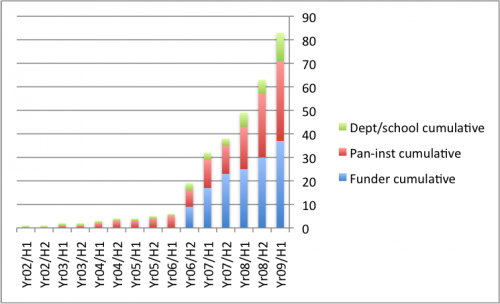
FIGURE: Accelerating Growth Rate in Worldwide Adoptions of Green Open Access Self-Archiving Mandates (2002-2009, in half-year increments) by Research Funders, Institutions, and Departments/Faculties/Schools (Swan 2009)
(1) The latest and fastest-growing kinds of Green Open Access Self-Archiving Mandates are not only self-chosen by the researchers themselves, but they are department/faculty/school mandates, rather than full university-wide mandates. These are the " patchwork mandates" that Arthur Sale already began recommending presciently back in 2007, in preference to waiting passively for university-wide consensus to be reached.
(The option of opting out is only useful if it applies, not to the the deposit itself [of the refereed final draft, which should be deposited, without opt-out, immediately upon acceptance for publication], but to whether access to the deposit is immediately set as Open Access.)
(2) Another recent progress report for Institutional Repositories, following Stirling's, is Aberystwyth's, which reached 2000 deposits in May.
(3) Richard asks: "Will the fact that many of the new mandates include opt-outs affect compliance rates? (Will that make them appear more voluntary than mandatory?)"
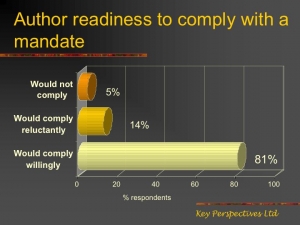 According to Alma Swan's international surveys, most authors report they would comply willingly with a self-archiving mandate. The problem is less with achieving compliance on adopted mandates than with achieving consensus on the adoption of the mandate in the first place. (Hence, again, Arthur Sale's sage advice to adopt "patchwork" department/faculty/school mandates, rather than waiting passively for consensus on the adoption of full university-wide mandates, is the right advice.)
And the principal purpose of mandates themselves is to reinforce researchers' already-existing inclination to maximise access and usage for their give-away articles, not to force researchers to do something they don't already want to do.
(Researchers need to be reassured that their departments or institutions or funders are indeed fully behind self-archiving, and indeed expect it of them; otherwise researchers remain in a state of " Zeno's Paralysis" about self-archiving year upon year, because of countless groundless worries, such as copyright, journal choice, and even how much time self-archiving takes.)
(4) Richard also asks: "What is full compliance so far as a self-archiving mandate is concerned?"
Full compliance is of course 100% compliance, and the longer-standing mandates are climbing toward that, but their biggest boost will come not only from time, nor even from the increasingly palpable local benefits of OA self-archiving (in terms of enhanced research impact), but from the global growth of Green OA Self-Archiving Mandates that Alma has just graphically demonstrated.
(5) "What other questions should we be asking?"
We should be asking what university students and staff can do to accelerate and facilitate the adoption of mandates at their institution. (See " Waking OA’s “Slumbering Giant”: The University's Mandate To Mandate Open Access.")
And the right way to judge the success of a mandate is not just by reporting the growth in an institution's yearly deposit rates, but by plotting the growth in deposit rate as a percentage of the institution's yearly output of research articles, for the articles actually published in that same year.
Stevan Harnad
American Scientist Open Access Forum
Wednesday, May 20. 2009
OA Self-Archiving Policy:
ICRISAT International Crops Research Institute for the Semi-Arid Tropics
Full list of institutions
 ICRISAT ICRISAT International Crops Research Institute for the Semi-Arid Tropics (INDIA institutional-mandate)
Institution's/Department's OA Eprint Archives
[growth data] http://openaccess.icrisat.org
Institution's/Department's OA Self-Archiving Policy:
Extract from ICRISAT OA Mandate (20th May 2009)
Every ICRISAT researcher/author in all locations, laboratories and offices will send a PDF copy of the author’s final version of a paper immediately upon receipt of communication from the publisher about its acceptance.
This policy is effective retroactively to 1 January 2009, in order to capture the publication outputs for the entire calendar year. The policy will remain in effect until further notice.
All PDFs should be sent electronically to the Library and Information Services. Complete citation details need to be provided once the article is actually published. The Library and Information Services will make the PDF available via ICRISAT’s Open Access platform which can be accessed at http://openaccess.icrisat.org
Sunday, May 17. 2009
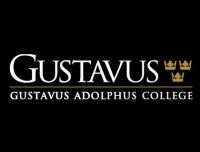 Gustavus Adolphus College Library Faculty
Open Access Pledge
The Gustavus library faculty believes that open access to scholarship is critical for scholarly communication and for the future of libraries. For that reason we pledge to make our own research freely available whenever possible by seeking publishers that have either adopted open access policies,publish contents online without restriction, and/or allow authors to self-archive their publications on the web. We pledge to link to and/or self-archive our publications to make them freely accessible.
Librarians may submit their work to a publication that does not follow open access principles and will not allow self archiving only if it is clearly the best or only option for publication; however, librarians will actively seek out publishers that allow them to make their research available freely online and, when necessary, will negotiate with publishers to improve publication agreements.
Adopted by the library faculty on May 14, 2009
Other statements
Oregon State University Libraries, Library Faculty Open Access Policy
University of Oregon Library Faculty Resolution
Academic Council of Libraries and Cultural Resources, University of Calgary
Harvard Faculty of Arts and Sciences Open Access motion (see item 5)
Department of Romance Languages, University of Oregon
University of Southhampton (UK) Open Access Mandate
More via ROARMAP
Resources
Directory of Open Access Journals
Open Access News (Peter Suber)
Self-Archivin FAQ
SHERPA/RoMEO: Publisher Copyright Policies and Self-Archiving
Friday, May 15. 2009
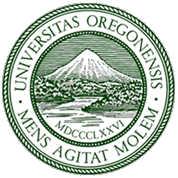 University of Oregon (UO) has just registered (in ROARMAP) UO's second Green Open Access (OA) self-archiving mandate in a week -- the world's 80th Green OA mandate overall.
UO's first mandate was for the UO Library Faculty. UO's latest one is for the UO Department of Romance Languages. It's also the first departmental mandate in the humanities (confirming, along with the several humanities funder mandates already adopted, that OA isn't, and never was, just for the sciences!).
This is also the world's 9th departmental mandate, again confirming Arthur Sale's sage advice about the " patchwork mandate" strategy: If your institution has not yet managed to reach consensus on adopting a university-wide OA mandate, don't wait! Go ahead and adopt departmental mandates, for which consensus can be reached more quickly and easily. The very first Green OA self-archiving mandate of them all was likewise a "patchwork mandate," adopted by the School of Electronics and Computer Science at University of Southampton. (A university-wide mandate has since been adopted as well.)
Also, if your institution does not yet have an Institutional Repository (IR), urge them to create one. (I recommend EPrints as by far the best, fastest, and simplest, of the free OS softwares, yet the one with the most powerful OA functionality.) But, as with mandates, don't wait for your institution to get 'round to it, if they're being sluggish: just download EPrints and create a departmental IR of your own: It can later be integrated with or upgraded into the university-wide IR.
Stevan Harnad
American Scientist Open Access Forum
Monday, May 11. 2009
ROARMAP (Registry of Open Access Repository Material Archiving Policies)Full list of Institutional Policies
Register your Institutional Policy in ROARMAP
Register your Institutional Repository in ROAR
INSTITUTIONAL Mandates: 35 (+ 1 Proposed INSTITUTIONAL Mandate)
DEPARTMENTAL Mandates: 8 (+ 6 Proposed MULTI-INSTITUTIONAL Mandates)
FUNDER Mandates: 36 (+ 7 Proposed FUNDER Mandates)
TOTAL MANDATES 79 (+ 14 TOTAL Proposed Mandates) 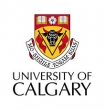 University of Calgary, Library and Cultural Resources (CANADA departmental-mandate)
http://www.ucalgary.ca/
Institution's/Department's OA Repository University of Calgary, Library and Cultural Resources (CANADA departmental-mandate)
http://www.ucalgary.ca/
Institution's/Department's OA Repository
[ growth data] http://dspace.ucalgary.ca/
Institution's/Department's OA Self-Archiving Policy
http://library.ucalgary.ca/open-access/lcr
"As an active member of the Scholarly Publishing and Academic Resources Coalition, Libraries and Cultural Resources at the University of Calgary endorses the Budapest Open Access Initiative, the Bethesda Statement on Open Access Publishing and the Berlin Declaration.
LCR academic staff members believe that the output of our scholarly activities should be as widely disseminated and openly available as possible. Our scholarly output includes but is not limited to journal articles, books and book chapters, presentations if substantial, conference papers and proceedings, and datasets.
Effective April 17, 2009, LCR academic staff commit to: Deposit their scholarly output in the University of Calgary’s open access scholarly repository
Promote Open Access on campus and assist scholars in making their research openly available
Where possible, publish their research in an open-access journal"
Friday, May 8. 2009
ROARMAP (Registry of Open Access Repository Material Archiving Policies)Full list of Institutional Policies
Register your Institutional Policy in ROARMAP
Register your Institutional Repository in ROAR
INSTITUTIONAL Mandates: 35 (+ 1 Proposed INSTITUTIONAL Mandate)
DEPARTMENTAL Mandates: 7 (+ 6 Proposed MULTI-INSTITUTIONAL Mandates)
FUNDER Mandates: 36 (+ 7 Proposed FUNDER Mandates)
TOTAL MANDATES 78 (+ 14 TOTAL Proposed Mandates) 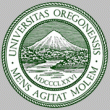 University of Oregon Library Faculty (US departmental-mandate)
http://www.uoregon.edu/https://scholarsbank.uoregon.edu/
Institution's/Department's OA Repository University of Oregon Library Faculty (US departmental-mandate)
http://www.uoregon.edu/https://scholarsbank.uoregon.edu/
Institution's/Department's OA Repository
[ growth data] https://scholarsbank.uoregon.edu/
Institution's/Department's OA Self-Archiving Policy
http://www.uoregon.edu/~jqj/lib-deposit-faq.html
The Library Faculty of the University of Oregon are committed to disseminating the fruits of their research and scholarship as widely as possible. In keeping with that commitment, the Faculty adopts the following policy:
Each Library faculty member gives to the University of Oregon nonexclusive permission to use and make available that author's scholarly articles for the purpose of open dissemination. Specifically, each Library faculty member grants a Creative Commons "Attribution-Noncommercial-No Derivative Works 3.0 United States" license to each of his or her scholarly articles. The license will apply to all scholarly articles written while the person is a member of the Library Faculty except for any articles accepted for publication before the adoption of this policy and any articles for which the Faculty member entered into an incompatible licensing or assignment agreement before the adoption of this policy. The Dean of the Libraries will waive application of the policy for a particular article upon written notification by the author, who informs the UO of the reason.
To facilitate distribution of the scholarly articles, as of the date of publication, each faculty member will make available an electronic copy of the author's final version of the article and full citation at no charge to a designated representative of the Libraries in appropriate formats (such as PDF) specified by the Libraries. After publication, the University of Oregon Libraries will make the scholarly article available to the public in the UO's institutional repository.
Our expectation is that we will develop an implementation of this policy that includes a blanket license signed by each faculty member as part of their regular contract renewal (to meet the "in writing" requirements of 17 USC 205(d)), plus suggestions for how to negotiate with publishers. We believe that in most cases no addendum to publishing contracts is needed, but in cases where such an addendum is needed the resolution puts the author in a stronger bargaining position.
Thursday, April 30. 2009
SUMMARY: The suggestion that the Association for Computing Machinery (ACM) does not support Open Access (OA) is incorrect (as was a similar suggestion about the American Psychological Association (APA) a year ago). The ACM is fully Green on both preprint and postprint self-archiving: it already formally endorses immediate, unembargoed deposit in the author's Institutional Repository (IR). What the ACM does not support is the blanket adoption of the author's addendum, which asks for more than this.
The author's addendum is welcome when there is agreement to adopt it; but it is not necessary in order to provide OA when the journal is already Green on OA (as 63% of journals already are). All ACM authors can already make their articles OA without it. The institutions that mandate Green OA self-archiving via the author's addendum should optimize their mandates so that their authors can comply with them by depositing in their IR even without also having to adopt the author's addendum when publishing in fully Green journals, rather than leaving authors with no option but to opt out of depositing altogether in such cases, if the journal does not agree to adopt the author's addendum. (Harvard has already provided a Procedural FAQ stating that compliance requires deposit even when the author opts out of adopting the author's addendum.)
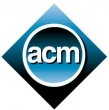 Harvard's Michael Mitzenmacher suggests -- though somewhat cautiously, acknowledging that there might be some misinformation involved -- that " The ACM Does NOT Support Open Access."
This is reminiscent of a similar case last July, in which it was the APA (American Psychological Association) that was being raked over the coals as being anti-OA (for trying to charge a $2500 deposit fee for making a direct central deposit in PubMed Central in compliance with NIH's Green OA self-archiving mandate). The APA later backed off the fee, but even before that I had to point out that the APA was already on the side of the angels insofar as OA was concerned, because it was completely Green on immediate, unembargoed OA self-archiving of both the preprint and the postprint -- but only in the author's Institutional Repository (IR). Since this already makes the IR deposit OA, I suggested that it was NIH that ought to optimize its mandate by allowing authors to fulfill it through direct deposit in their own IR, instead of insisting on direct central deposit in PubMed Central; the metadata of the IR deposit can then be automatically exported to PubMed Central via the SWORD protocol. (NIH is now considering adopting this option.)
By exactly the same token, it is completely incorrect to say that the ACM (Association for Computing Machinery) does not support Open Access. Just like the APA, the ACM is completely Green on both preprint and postprint self-archiving. That means it too endorses immediate, unembargoed deposit in the author's institutional repository. What the ACM does not support is the author's addendum, which asks for more than this.
Current standard ACM copyright agreement:
Rights Retained by Authors and Original Copyright Holders Under the ACM copyright transfer agreement, the original copyright holder retains... the right to post author-prepared versions of the work covered by ACM copyright in a personal collection on their own Home Page and on a publicly accessible server of their employer, and in a repository legally mandated by the agency funding the research on which the Work is based. Such posting is limited to noncommercial access and personal use by others...
Author's Addendum:
Author’s Retention of Rights. Notwithstanding any terms in the Publication Agreement to the contrary, AUTHOR and PUBLISHER agree that in addition to any rights under copyright retained by Author in the Publication Agreement, Author retains: (i) the rights to reproduce, to distribute, to publicly perform, and to publicly display the Article in any medium for noncommercial purposes; (ii) the right to prepare derivative works from the Article; and (iii) the right to authorize others to make any non-commercial use of the Article so long as Author receives credit as author and the journal in which the Article has been published is cited as the source of first publication of the Article.
Now the author's addendum is a fine, indeed desirable thing, when there is agreement to adopt it; but it is not necessary in order to provide OA -- and particularly not when the journal is already Green on OA (as 63% of journals already are). So since the ACM journals are all already completely Green, there is no need for the author's addendum. ACM authors can already make all of their ACM articles OA without it. As in the case of NIH, the institutions that mandate Green OA via the author's addendum should optimize their mandates so that their authors can fulfill their mandates by depositing in their IR even without the author's addendum in the case of articles published in journals that are already Green on immediate OA self-archiving (as ACM journals are), rather than leaving authors with no option but to opt out of depositing altogether under those conditions. ( Harvard has already modified its mandate so as to require deposit even when the author opts out of adopting the author's addendum.)
ACM's current President, Wendy Hall, is not only the one who adopted the world's first Green OA Mandate (when she was Head of the School of Electronics and Computer Science of the University of Southampton), but she was also instrumental in the adoption of the European Research Council's Green OA mandate, and other Green OA mandates as well. If she is to be written to -- as Michael Mitzenmacher suggests -- it should be to thank her for her enormous contributions to OA, rather than to complain that ACM has not yet agreed to the author's addendum.
In Defense of the American Psychological Association's Green OA Policy (July 2008)
The OA Deposit-Fee Kerfuffle: APA's Not Responsible; NIH Is. PART I.
The OA Deposit-Fee Kerfuffle: APA's Not Responsible; NIH Is. PART II.
Upgrade Harvard's Opt-Out Copyright Retention Mandate: Add a No-Opt-Out Deposit Clause (Feb 2008)
NIH Open to Closer Collaboration With Institutional Repositories (Feb 2009)
Harvard Mandate Adds ID/OA, Hurray! (Mar 2009)
Stevan Harnad
American Scientist Open Access Forum
Friday, April 24. 2009
 Those who still harbor any doubt that the mixing of talk about Gold OA publishing or funding with plans for Green OA self-archiving mandates causes anything but confusion, distraction, delay and failure to make progress toward universal OA: please read Peter Suber's comments on this latest fiasco at the University of Maryland -- and weep.
And then please trust some sound advice from a weary and wizened but world-wise archivangelist: Disentangle completely all talk and policy concerning the requirement to self-archive refereed journal articles (the Green OA mandate) from any advice concerning whether or not to publish in Gold OA journals, and from any plans to help authors pay for Gold OA journal publishing charges, should they elect to publish in a fee-based Gold OA journal. Otherwise this mindless and thoughtless Gold Fever will just usher in yet another half-decade of failure to grasp what is already fully within the global research community's reach: universal Green OA through universal Green OA self-archiving mandates adopted by universities and research funders worldwide.
Below is the text of the defeated University of Maryland Resolution, highlighting:
relevant green clauses
relevant neutral clauses
irrelevant and distracting gold clauses
irrelevant and misleading neutral clauses
(In order to make the UMd policy a mandate, like the 77 Green OA mandates adopted to date, the word "encourages" should be replaced by "requires," otherwise the policy is destined to recapitulate the fate of the first NIH policy, which failed until it was upgraded from an encouragement to a requirement):(1) The University Senate urges the President to work collectively with other universities, research institutions, and other appropriate entities to establish and advocate for nationwide open access policies, such as those recently adopted by the National Institutes of Health, that would apply to all disciplines.
(2) The University Senate urges the Libraries to continue to inform the faculty about the pricing and open access policies of the journals in its collection and, where possible, to assist faculty in negotiating reasonable copyright and open access arrangements.
(3) The University Senate encourages faculty, students, and other researchers, where practical and not detrimental to their careers, to (a) publish in open access journals or journals that make their contents openly accessible shortly after publication, (b) negotiate with the journals in which they publish for the right to deposit articles in an open access repository, and (c) consider the price of the journal as one factor in the decision on where to publish.
(4) The University Senate encourages faculty, students, and other researchers to deposit all preprints and reprints of articles, when permitted, in an open access repository such as the DRUM archive or, where appropriate, in discipline-specific repositories such as PubMed Central.
Stevan Harnad
American Scientist Open Access Forum
|
 University of Pretoria (SOUTH AFRICA institutional-mandate )
University of Pretoria (SOUTH AFRICA institutional-mandate )



 University of Oregon (UO) has just registered (in
University of Oregon (UO) has just registered (in  University of Calgary, Library and Cultural Resources (CANADA departmental-mandate)
University of Calgary, Library and Cultural Resources (CANADA departmental-mandate) University of Oregon Library Faculty (US departmental-mandate)
University of Oregon Library Faculty (US departmental-mandate) Harvard's
Harvard's 



